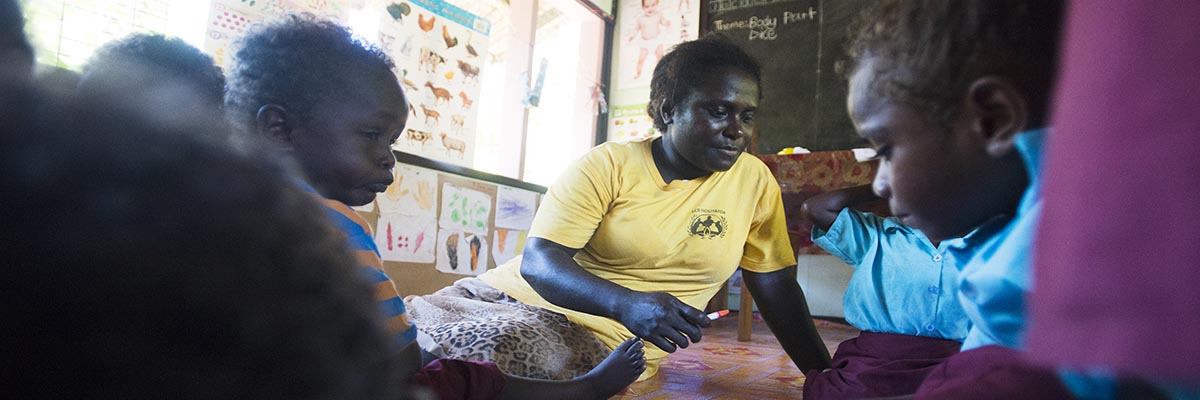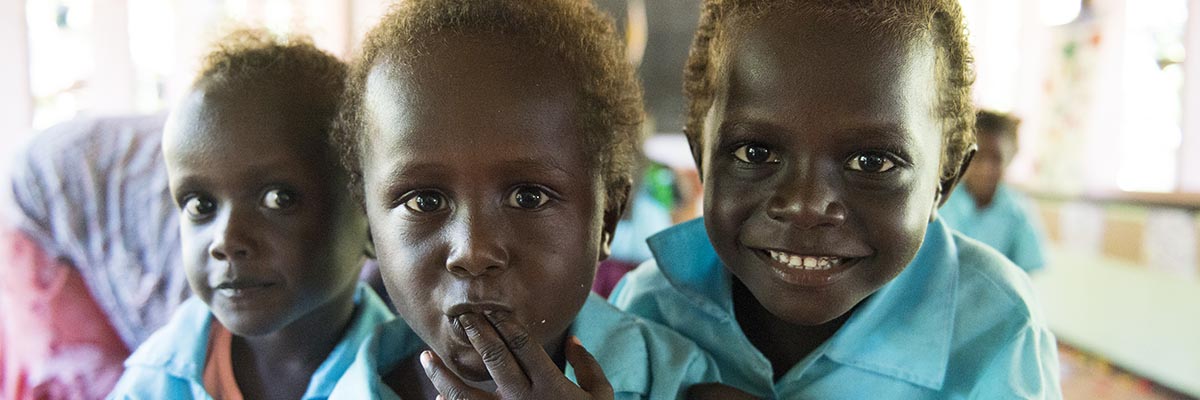Early play-based education sets children up for a lifetime of learning
In Solomon Islands, Save the Children is bringing early education to some of the most remote communities in the world. We’re training local early education facilitators in play-based learning and raising awareness in the community about the importance of early education, as well as encouraging parents to participate in their child’s learning. We’re also working with local government, community groups and churches to reach everyone in the community.
Why early play-based learning is important
Across Solomon Islands, more than half of all children don’t engage in early learning. This is impacting their education for life, with 36% of children dropping out of school early.

The biggest barriers to early learning are isolation and lack of services. For children in remote communities, walking long distances is not always safe, and families may not have the money for boat travel. For children who live with disabilities, accessing early learning is even more of a challenge.

Yet we know that early play-based education has a powerful effect on children’s health, cognitive development, and social and emotional development. When parents are involved, it builds stronger family bonds, and can counter other issues faced in early childhood such as abuse, neglect, poverty and exposure to violence.
Save the Children's Play to be School Ready program
We are working in 35 remote communities to provide children with nurturing, play-based early childhood education right in their village. We’re training community-based early education facilitators in play-based teaching practices that promote holistic child development and strengthen literacy and numeracy, so they can be ready for primary school.
We are also developing vernacular storybooks that use local language for more purposeful learning. We are working with parents to raise awareness about the importance of early education, and we’re encouraging them to participate in all elements of the program.
We also work with local education providers, church groups, community organisations and the Red Cross to ensure our program is inclusive of all children, especially children living with disabilities.